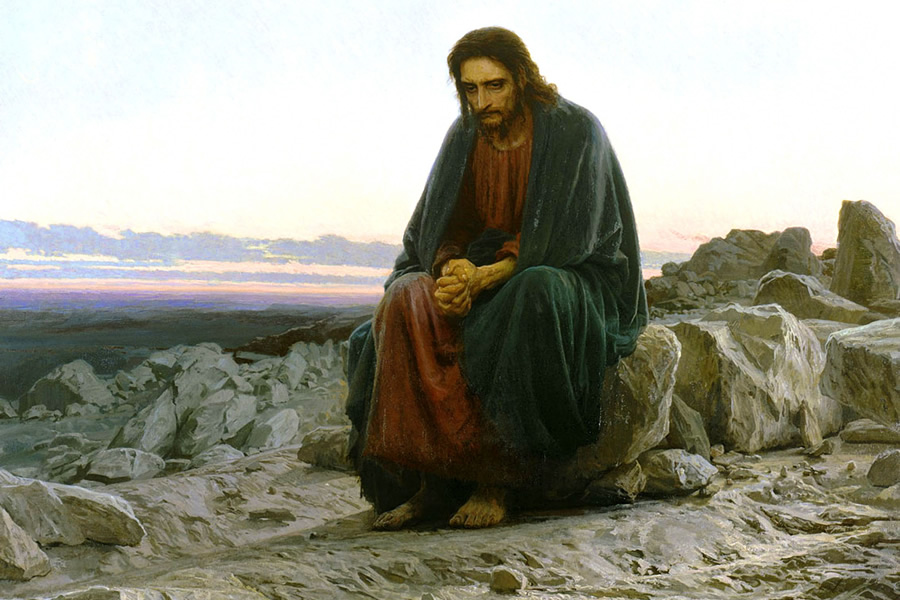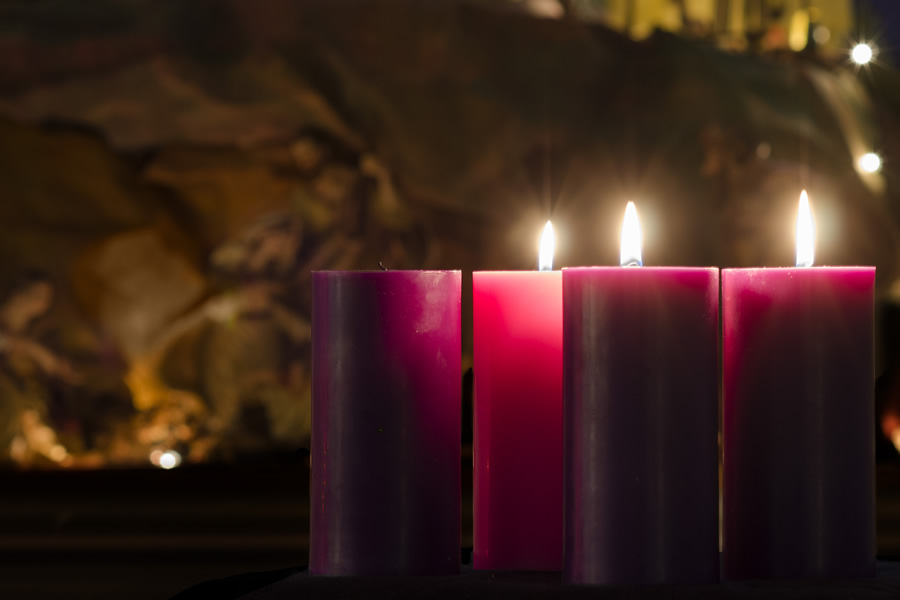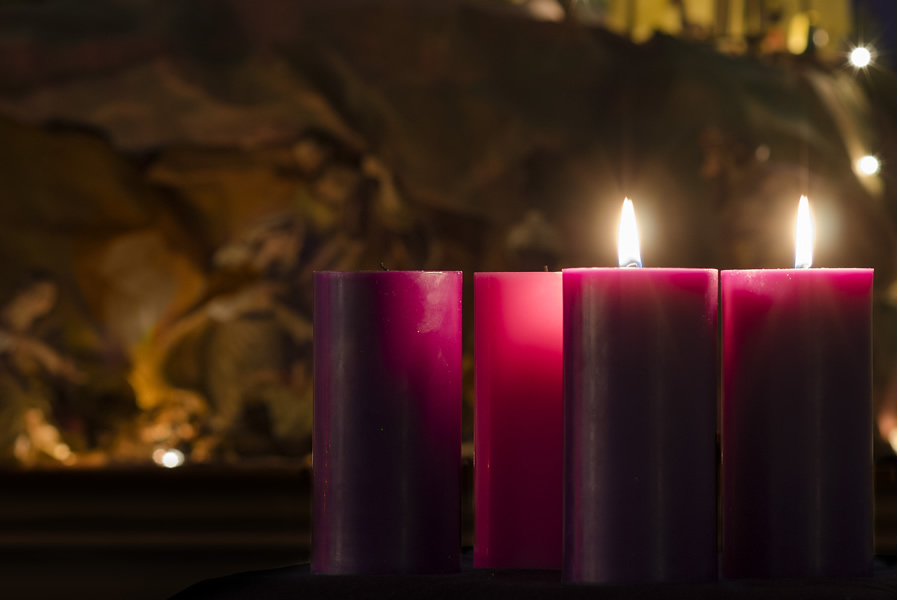
Bonds Loosed
02-25-2024Weekly ReflectionDr. Scott HahnThe Lenten season continues with another story of testing. Last Sunday, we heard the trial of Jesus in the desert. In this week’s First Reading, we hear of how Abraham was put to the test.
The Church has always read this story as a sign of God’s love for the world in giving His only-begotten son.
In today’s Epistle, Paul uses exact words drawn from this story to describe how God, like Abraham, did not withhold His only Son, but handed Him over for us on the Cross (see Romans 8:32; Genesis 22:12,16).
READ MORE
The New Creation
02-18-2024Weekly ReflectionDr. Scott HahnLent bids us to return to the innocence our baptism. As Noah and his family were saved through the waters of the deluge, we were saved through the waters of Baptism, Peter reminds us in today’s Epistle.
And God’s covenant with Noah in today’s First Reading marked the start of a new world. But it also prefigured a new and greater covenant between God and His creation (see Hosea 2:20; Isaiah 11:1–9).
READ MORE
Made Clean
02-11-2024Weekly ReflectionDr. Scott HahnIn the Old Testament, leprosy is depicted as punishment for disobedience of God’s commands (see Numbers 12:12–15; 2 Kings 5:27; 15:5).
Considered “unclean”—unfit to worship or live with the Israelites, lepers are considered “stillborn,” the living dead (see Numbers 12:12). Indeed, the requirements imposed on lepers in today’s First Reading—rent garments, shaven head, covered beard—are signs of death, penance, and mourning (see Leviticus 10:6; Ezekiel 24:17).
READ MORE
Raised to Serve
02-04-2024Weekly ReflectionDr. Scott HahnIn today’s First Reading, Job describes the futility of life before Christ.
His lament reminds us of the curse of toil and death placed upon Adam following his original sin (see Genesis 3:17-19). Men and women are like slaves seeking shade, unable to find rest. Their lives are like the wind that comes and goes.
But, as we sing in today’s Psalm, He who created the stars promised to heal the brokenhearted and gather those lost in exile from Him (see Isaiah 11:12; 61:1). We see this promise fulfilled in today’s Gospel.
READ MORE
The King’s Authority
01-28-2024Weekly ReflectionDr. Scott HahnLast week, Jesus announced the kingdom of God is at hand. This week, in mighty words and deeds, He exercises His dominion—asserting royal authority over the ruler of this world, Satan (see John 12:31).
Notice that today’s events take place on the sabbath. The sabbath was to be an everlasting sign—both of God’s covenant love for His creation (see Exodus 20:8–11; 31:12–17), and His deliverance of His covenant people, Israel, from slavery (see Deuteronomy 6:12–15).
READ MORE
Following Him
01-21-2024Weekly ReflectionDr. Scott HahnThe calling of the brothers in today’s Gospel evokes Elisha’s commissioning by the prophet Elijah (see 1 Kings 19:19–21).
As Elijah comes upon Elisha working on his family’s farm, so Jesus sees the brothers working by the seaside. And as Elisha left his mother and father to follow Elijah, so the brothers leave their father to come after Jesus.
READ MORE
A farewell message from Fr. Chris
01-13-2024Weekly ReflectionFr. Chris BaeDear Parishioners,
It was my great joy and privilege to serve at St. Columbkille for the last 6 years. I have truly had a blessed time here. Especially, I thank God for the grace He poured upon us when we were going through the challenging time during Pandemic. Because of that grace, we were able to stay together and worship together. I will greatly miss all of you!
READ MORE
Newborn King
01-07-2024Weekly ReflectionDr. Scott HahnToday the child born on Christmas is revealed to be the long-awaited king of the Jews.
As the priests and scribes interpret the prophecies in today’s Gospel, He is the ruler expected from the line of King David, whose greatness is to reach to the ends of the earth (see Micah 5:1–3; 2 Samuel 5:2).
Jesus is found with His mother, as David’s son, Solomon, was enthroned alongside his Queen Mother (see 1 Kings 2:19). And the magi come to pay Him tribute, as once kings and queens came to Solomon (see 1 Kings 10:2,25).
His coming evokes promises that extend back to Israel’s beginnings.
READ MORE
The Mystery Kept Secret
12-24-2023Weekly ReflectionDr. Scott HahnWhat is announced to Mary in today’s Gospel is the revelation of all that the prophets had spoken. It is, as Paul declares in today’s Epistle, the mystery kept secret since before the foundation of the world (see Ephesians 1:9; 3:3-9).
Mary is the virgin prophesied to bear a son of the house of David (see Isaiah 7:13-14). And nearly every word the angel speaks to her today evokes and echoes the long history of salvation recorded in the Bible.
READ MORE
One Who is Coming
12-17-2023Weekly ReflectionDr. Scott HahnThe mysterious figure of John the Baptist, introduced in last week’s readings, comes into sharper focus today. Who he is, we see in today’s Gospel, is best understood by who he isn’t.
He is not Elijah returned from the heavens (see 2 Kings 2:11), although like him he dresses in the prophet’s attire (see Mark 1:6; 2 Kings 1:8) and preaches repentance and judgment (see 1 Kings 18:21; 2 Chronicles 21:12–15).
READ MORE
Straighten the Path
12-10-2023Weekly ReflectionDr. Scott HahnThank you for your prayer request. Prayers are sent to our team of prayer ministers every day. All prayers are consOur God is coming. The time of exile—the long separation of humankind from God due to sin—is about to end. This is the good news proclaimed in today’s liturgy.
Isaiah in today’s First Reading promises Israel’s future release and return from captivity and exile. But as today’s Gospel shows, Israel’s historic deliverance was meant to herald an even greater saving act by God—the coming of Jesus to set Israel and all nations free from bondage to sin, to gather them up and carry them back to God.
READ MORE
Watch for Him
12-03-2023Weekly ReflectionDr. Scott HahnThe new Church year begins with a plea for God’s visitation. “Oh that you would rend the heavens and come down,” the prophet Isaiah cries in today’s First Reading.
In today’s Psalm, too, we hear the anguished voice of Israel, imploring God to look down from His heavenly throne—to save and shepherd His people.
Today’s readings are relatively brief. Their language and “message” are deceptively simple. But we should take note of the serious mood and penitential aspect of the Liturgy today as the people of Israel recognize their sinfulness, their failures to keep God’s covenant, their inability to save themselves.
READ MORE